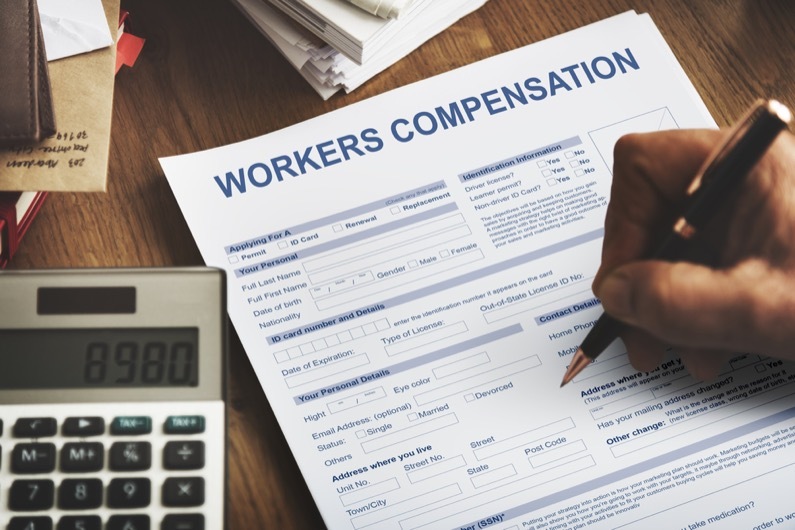Understanding Workers' Compensation Insurance: Coverage, Cost, and Providers

In business operations, safeguarding the well-being of employees is of paramount importance. One critical tool for achieving this goal is Workers' Compensation Insurance. This comprehensive coverage ensures that employees are financially protected in the event of workplace injuries or illnesses. In this article, we will delve into the intricacies of Workers' Compensation Insurance, including its purpose, coverage, costs, and reputable providers.
What is workers’ compensation insurance?
Workers' Compensation Insurance, often referred to simply as workers' comp, is a specialized insurance coverage designed to provide financial assistance to employees who sustain injuries or illnesses while on the job. This insurance not only protects employees by covering medical expenses and lost wages but also shields employers from potential lawsuits arising from workplace accidents.
How does workers' compensation insurance work?
When an employee is injured or falls ill due to job-related circumstances, workers' compensation insurance steps in. This insurance operates on a no-fault basis, meaning that even if the employee's actions contributed to the incident, they are still eligible for benefits.
By offering this coverage, employers fulfill their responsibility to support injured or ill employees during their recovery.
Workers' Compensation Insurance Coverage
Workers' Compensation Insurance emerges as a fundamental shield against adversity. This invaluable coverage extends its protective wings over a range of critical areas, ensuring that employees and their families are supported during times of distress.
Medical Expenses
Workers' compensation insurance covers a range of medical expenses, including hospital bills, doctor visits, prescription medications, surgeries, and rehabilitative treatments necessary for the employee's recovery.
Lost Wages
If an employee is unable to work due to the injury or illness, workers' comp provides compensation for the wages lost during their recovery period.
Disability Benefits
In cases where an employee sustains a permanent disability, workers' compensation insurance may provide long-term or lump-sum disability benefits to help them manage their changed circumstances.
Ongoing Care
Some injuries require ongoing care, such as physical therapy or home healthcare. Workers' comp can cover these costs to ensure the employee's continued recovery.
Death Benefits
Tragically, if a workplace incident leads to an employee's death, workers' compensation insurance can provide financial support to the deceased employee's dependents.

What Workers' Compensation Insurance Does Not Cover
It's important to note that workers' compensation insurance does not typically cover injuries that occur outside of the workplace or are unrelated to job responsibilities. Additionally, injuries caused by willful misconduct or substance abuse are often excluded from coverage.
How much does workers' compensation insurance cost?
The cost of workers' compensation insurance varies depending on several factors, including the location of the business, the industry it operates in, the company's claims history, and the size of its payroll.
Factors That Affect a Workers' Compensation Insurance Premium
From where your business is located to the type of industry you're in, your claims history, and the size of your workforce – all these elements play a role in determining the premium you'll pay for this essential coverage. By understanding these influencing factors, you'll be better equipped to make informed decisions that ensure your business's security while taking care of your employees.
Location
Different states have different regulations and rates for workers' compensation insurance. The location of your business plays a role in determining the cost.
Type of Business
High-risk industries may have higher premiums due to the increased likelihood of workplace injuries. Conversely, low-risk industries may enjoy lower premiums.
Claims History
A history of frequent or severe claims can lead to higher premiums, as it suggests a higher risk for future incidents.
Payroll Size
The size of your payroll is directly proportional to your premium. A larger workforce typically results in a higher premium.

How To File a Claim for Workers' Compensation
Navigating the process of filing a workers' compensation claim requires clear communication, accurate documentation, and cooperation between the employee, employer, and insurance carrier.
By following these steps diligently, both the injured employee and the business can ensure a smoother claims process and facilitate the provision of necessary benefits.
1. Prompt Communication
If an employee sustains an injury or falls ill due to work-related activities, it's crucial for them to notify their employer as soon as possible. Timely reporting ensures that the necessary steps can be taken promptly to initiate the claims process.
2. Employer Guidance
Once informed, the employer plays a pivotal role in guiding the employee through the entire claims process. They should provide the necessary forms and information, explaining the procedures and requirements clearly to the employee.
3. Complete Paperwork
Filing a workers' compensation claim involves paperwork. The employee will need to complete the relevant forms provided by the employer or the workers' compensation insurance carrier. These forms usually require details about the incident, the nature of the injury or illness, and any medical treatment received.
4. Medical Documentation
Alongside the paperwork, medical documentation is essential. The employee should provide medical records, doctor's notes, test results, and any other relevant medical evidence that supports the claim. These documents help establish the connection between the injury or illness and the workplace.
5. Employer Reporting
Once the employee's claim documents and medical records are collected, the employer typically submits these materials to the workers' compensation insurance carrier. This initiates the official claims process.
6. Insurance Review
The insurance carrier will review the submitted documentation to assess the validity of the claim. They may also conduct investigations and interviews or seek additional medical evaluations to ensure the claim's accuracy.
7. Claim Decision
Based on their assessment, the insurance carrier will make a decision regarding the claim. They will determine whether the injury or illness qualifies for workers' compensation benefits according to the coverage criteria.
8. Notification to Employee
The employee will be informed of the claim decision by the insurance carrier or their employer. If the claim is approved, the employee will receive details about the benefits they are entitled to receive.
9. Benefit Disbursement
In case the claim is approved, the workers' compensation benefits will be disbursed to the employee. These benefits may include coverage for medical expenses, lost wages, and other applicable compensation.
10. Appeals (if necessary)
If the claim is denied, the employee has the right to appeal the decision. This involves following the appeal process outlined by the workers' compensation system in their jurisdiction. Appeals may require additional documentation or evidence to support the claim.

Get In Touch With A Reliable Insurance Provider
When considering workers' compensation insurance, it's crucial to choose a reliable provider. Hotchkiss Insurance stands out as a trusted and reputable provider of workers' compensation insurance, particularly in the greater state of Texas. Their expertise and commitment to ensuring the safety and well-being of employees make them a top choice for businesses seeking comprehensive coverage.
Workers' Compensation Insurance FAQs
Here are some answers to frequently asked questions about this policy.
Who pays for workers' compensation insurance?
Employers bear the cost of workers' compensation insurance. It's a crucial part of providing a safe work environment and financial protection for employees.
Is workers' compensation insurance required?
In most states, workers' compensation insurance is mandatory for businesses with employees. The requirements vary, so it's essential to understand the regulations in your state.
Who needs workers' compensation insurance?
Any business with employees should strongly consider obtaining workers' compensation insurance to protect both their employees and themselves from financial risks associated with workplace injuries.
What happens if I don’t have workers' compensation insurance?
Operating without workers' compensation insurance can lead to severe legal and financial consequences. Fines, penalties, and potential lawsuits can jeopardize your business's viability.
Embracing Empathy and Security: A Responsible Approach to Workers' Compensation Insurance
Workers' Compensation Insurance is a cornerstone of responsible business management. By understanding its coverage, costs, and the importance of reliable workers’ compensation insurance providers like Hotchkiss Insurance, employers can prioritize the safety and security of their employees while safeguarding their own business interests.
Remember, investing in workers' compensation insurance isn't just a legal requirement; it's a compassionate and responsible choice that fosters a safer and more productive work environment. Take care of your employees and contact Hotchkiss Insurance today.